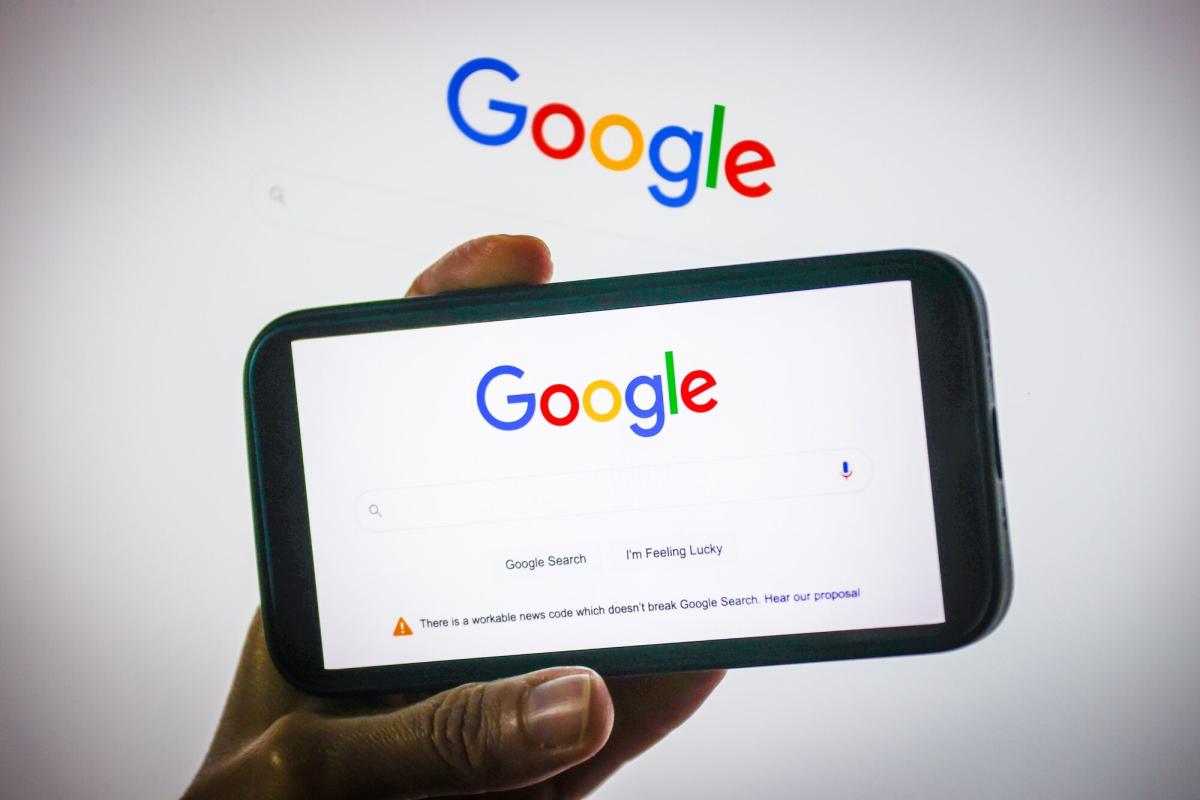
(Bloomberg) — Google illegally monopolized the search market through exclusive deals, a judge ruled Monday, handing the government a win in its first major antitrust case against a tech giant in more than two decades.
Most Read from Bloomberg
Judge Amit Mehta in Washington said that the Alphabet Inc. unit’s $26 billion in payments to make its search engine the default option on smartphones and web browsers effectively blocked any other competitor from succeeding in the market.
“Google’s distribution agreements foreclose a substantial portion of the general search services market and impair rivals’ opportunities to compete,” Mehta said in a 286-page ruling.
By monopolizing distribution on phones and browsers, Google has been able to consistently raise the prices of online advertising without consequences, Mehta said.
“The trial evidence firmly established that Google’s monopoly power, maintained by the exclusive distribution agreements, has enabled Google to increase text ads prices without any meaningful competitive constraint,” he wrote.
Antitrust enforcers alleged that Google has illegally maintained a monopoly over online search and related advertising. The government said that Google has paid Apple, Samsung Electronics Co. and others billions over decades for prime placement on smartphones and web browsers. This default position has allowed Google to build up the most-used search engine in the world and fueled more than $300 billion in annual revenue largely generated by search ads.
Alphabet shares slid almost 4.5% to $159.25 at the close in New York. Apple Inc., which depending on the remedy could stand to lose billions in payments Google makes to have its search engine be the default browser on iPhones, fell 4.8% to $209.27.
“This victory against Google is a historic win for the American people,” said Attorney General Merrick Garland. “No company — no matter how large or influential — is above the law. The Justice Department will continue to vigorously enforce the antitrust laws.”
Google said it plans to appeal the decision. “As this process continues, we will remain focused on making products that people find helpful and easy to use,” Kent Walker, President of Google Global Affairs, said in a statement.
Mehta found that Google doesn’t have a monopoly in the market for general search advertising, noting that competitors like Amazon.com Inc., Walmart Inc. and other retailers have begun to offer advertising related to searches on their own websites. But Google does have a monopoly over search text ads, which appear at the top of a search results page to draw users to websites, he said.
Mehta’s decision focuses solely on Google’s liability, nine months after the Justice Department and a group of states held a 10-week trial in federal court. Mehta scheduled a hearing for next month to discuss the timing for a separate trial on the remedy.
The Justice Department hasn’t yet said what changes it will seek, though it presented evidence that efforts by European regulators to require Google to offer users a choice of search engines led few to switch. The agency could demand the separation of Alphabet’s search business from other products, like Android or Chrome, which — if ordered by the juge — would mark the biggest forced breakup of a US company since AT&T was dismantled in 1984.
The judge could also stop short of ordering a full breakup and chose to unwind the exclusive search deals. Another option could be to require Google to license its search index, which is the data that it uses to build its search results.
Antitrust enforcers separately sued Google for allegedly monopolizing the technology used to buy, sell and serve display advertising online. In that case, which is set for trial in Virginia federal court next month, the government is seeking to force Google to sell off some of its advertising technology products.
Dan Morgan, a senior portfolio manager at Synovus Trust, said the decision adds to the “black cloud” of legal and regulatory uncertainty that has been hovering over the company.
“It does create some doubt in a company that already kind of disappointed on the quarter,” he said.
‘Measured’ Decision
Mehta’s decision is “reasonable and balanced,” accepting some but not all of the government’s arguments, which will likely help in any appeals, said William Kovacic, who teaches antitrust at George Washington Law School.
“His decision is measured and not simply a credulous acceptance of the government’s arguments,” said Kovacic, who served as chair of the Federal Trade Commission during the George W. Bush administration.
Some of the Mehta’s analysis about advertising markets may raise difficulties for the government as it pursues its second case against Google, Kovacic said. But the opinion will likely be helpful for a number of the government’s other antitrust cases awaiting trial against Apple, Amazon and Meta Platforms Inc. on how to consider justifications by the companies for their behavior, he said.
Mehta’s decision is “bold in a legally careful way that will do well on appeal,” said Rebecca Allensworth, an antitrust professor at Vanderbilt Law School. It will “lay the blueprint for other tech cases going forward.”
–With assistance from Mark Gurman and Julia Love.
(Updates with other possible remedies in 13th paragraph.)
Most Read from Bloomberg Businessweek
©2024 Bloomberg L.P.
EMEA Tribune is not involved in this news article, it is taken from our partners and or from the News Agencies. Copyright and Credit go to the News Agencies, email news@emeatribune.com Follow our WhatsApp verified Channel





